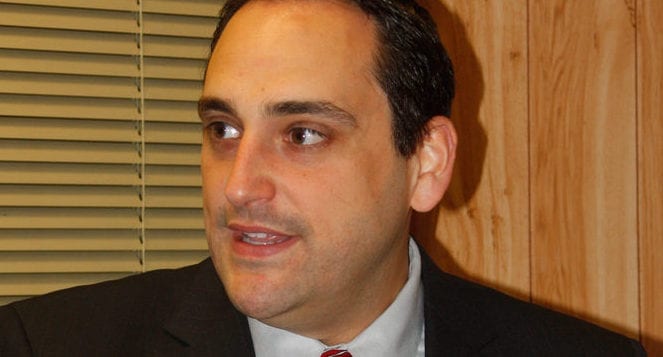A state assemblywoman from Ithaca is pushing to provide state aid to municipalities that host four-year, residential State University of New York colleges and universities, and Brookhaven Supervisor Ed Romaine (R) is signing onto the cause because of the potential financial relief it could bring to Long Island.
The legislation, introduced by Assemblywoman Barbara Lifton (D-Ithaca) on March 24, seeks to offset the cost of providing public safety services to state schools, which are currently tax-exempt. The move came shortly after Romaine vowed to work with the New York State Board of Regents to seek a payment in lieu of taxes, or PILOT, for the Stony Brook and Setauket fire departments, which both serve SUNY Stony Brook University.
Lifton, who represents the cities and towns of Ithaca and Cortland — which host SUNY Cortland and the College of Agriculture and Life Sciences at Cornell University — called the lack of aid a big issue for her municipalities.
“There is a deficit there that we need to makeup,” she said, noting that the state’s Aid and Incentives for Municipalities, or AIM funding, has decreased over the years.
The legislation earmarks $12 million in aid for the host municipalities, and establishes a formula to distribute the aid based on the cost of public safety services, how much AIM funding the community already receives and the student population.
Lifton said there are a lot of rental properties in Cortland, so the police and fire departments “provide more than the normal amount of services.” In the City of Cortland, firefighters are paid, but Cortland Town firefighters volunteer their time.
While the legislation currently doesn’t propose aid be rewarded to a fire districts like those in Stony Brook and East Setauket, Romaine still said he was supportive of the idea.
“We think this is a solution,” Romaine said.
Like in Cortland, Brookhaven officials have been dealing with off-campus rental properties, which university students often inhabit. Over the last two years, the town has tried to curtail illegal and overcrowded rentals in the Stony Brook and Setauket area by strengthening its codes, increasing fines and working with the university to educate students about illegal rentals. The town also hired additional investigators to stay on top of the issue.
While Romaine said the legislation would help Brookhaven, he continued to advocate for “some contribution to the fire districts involved so their taxpayers don’t have to bear that burden.”
Romaine also said he hopes Long Island’s state representatives would support the legislation, and that at some point along the line, a PILOT agreement is established.
State Assemblyman Ken LaValle (R-Port Jefferson) and Sen. John Flanagan (R-East Northport) did not return requests for comment.
Stony Brook Fire Department Commissioner Paul Degen, who works as a town investigator, said 50 percent of Stony Brook Fire District’s tax base is exempt, which has made things financially difficult at times as the department has spent money retrofitting trucks and adequately training volunteers.
“It is what it is, but it would be nice if 50 percent of our district paid their fair share,” he said.
According to records from Stony Brook University, alarms requiring a fire department unit on the scene have dropped since 2012 when single detector activations, which are investigated by university fire marshals and don’t require fire department presence, were implemented in May 2012.
In 2012, the Stony Brook and/or Setauket departments were on scene for a total of 137 alarms. In 2013, the number drastically dropped to 25.
While there has been progress, Degen said he would like to see more incentives to attract department volunteers, which aren’t easy to come by these days. The department currently has 72 members, and more than half of them are over 50 years old.
One idea, he said, would be to offer some sort of tuition break or benefit to volunteers, which could help attract students to the department.
“All of that needs to be visited,” he said.
Romaine, Lifton and Degen expressed similar sentiments about the universities, saying they play important roles in the host communities, which welcome them, but still shouldn’t burden the taxpayers.
“All I’m asking for is some kind of remuneration,” Romaine said. “The full burden should not fall on the taxpayer. That is just not fair.”






